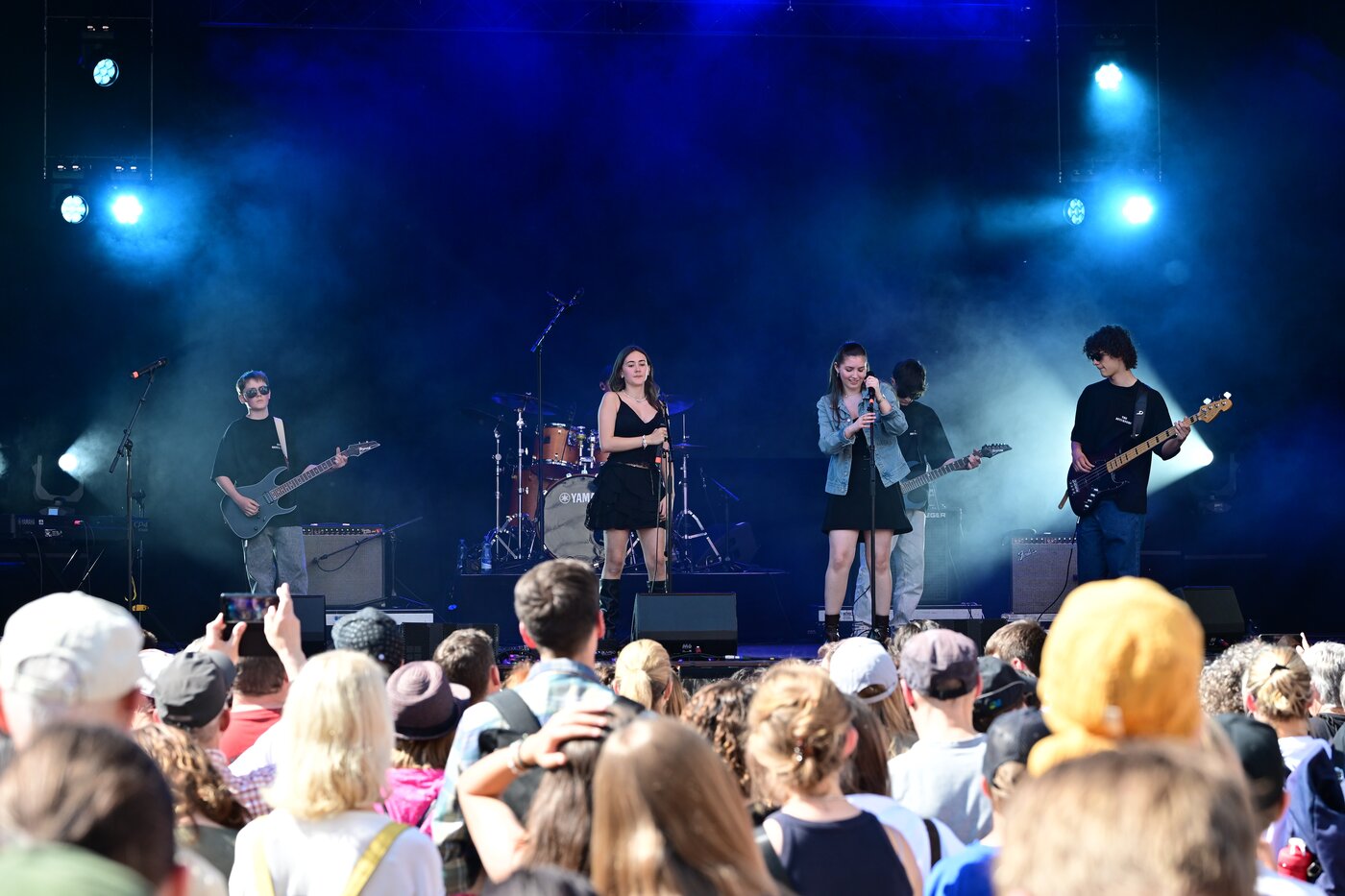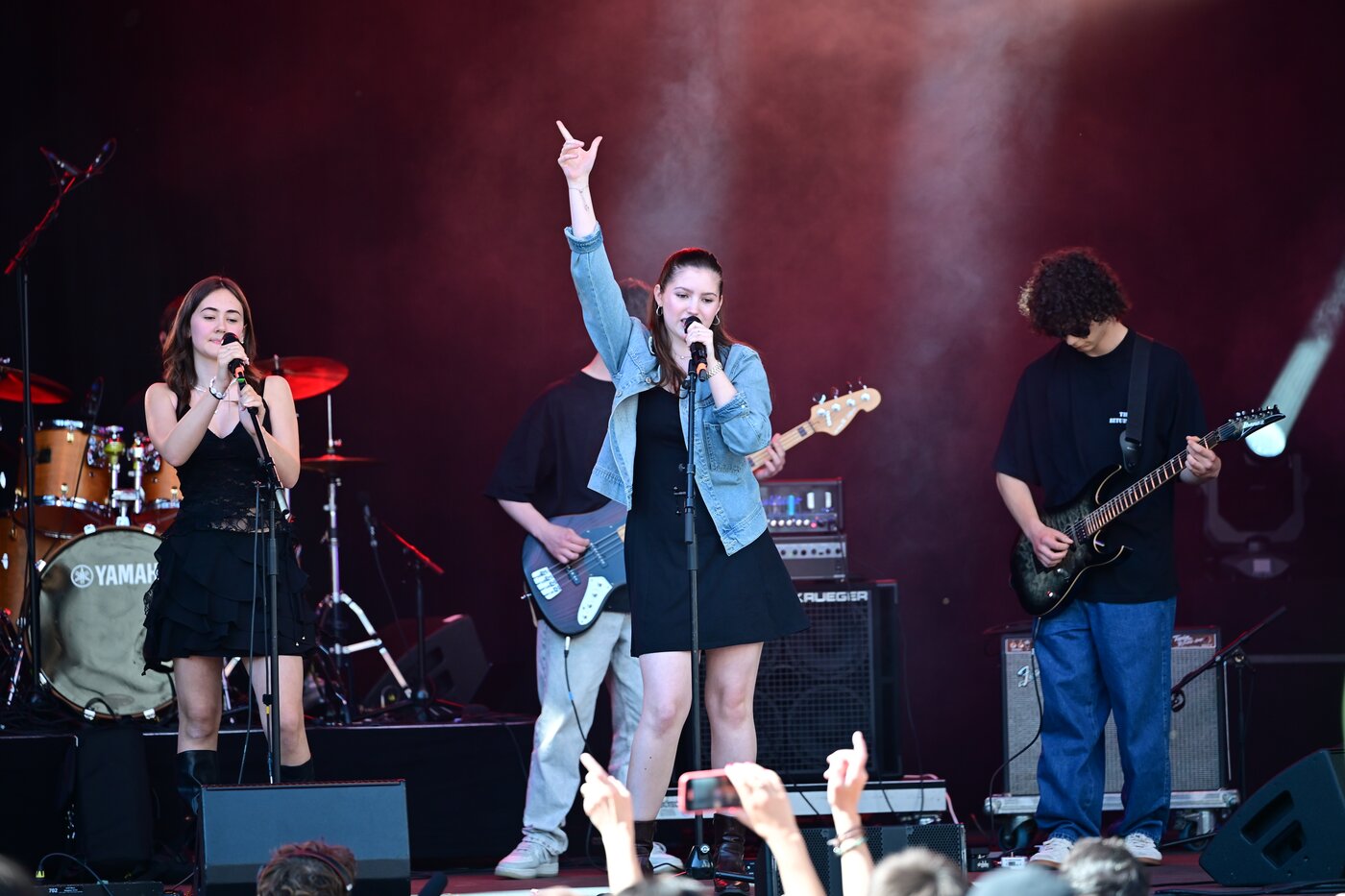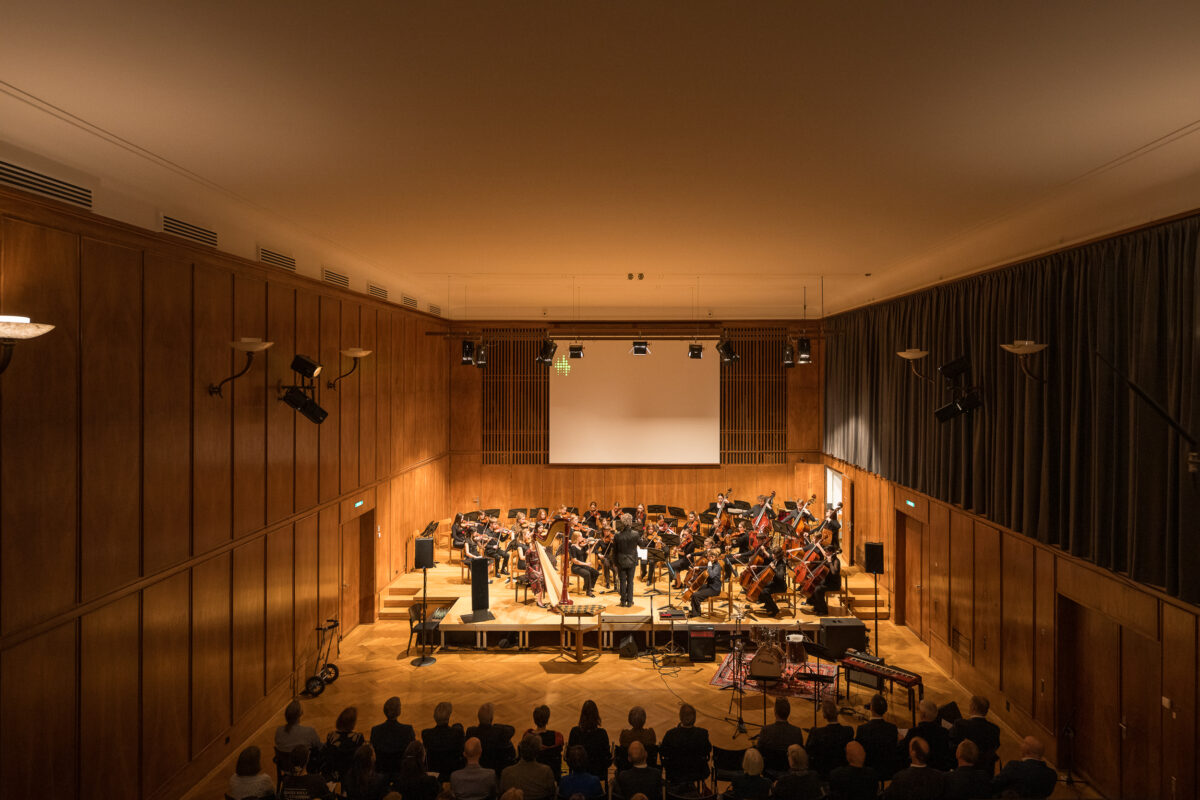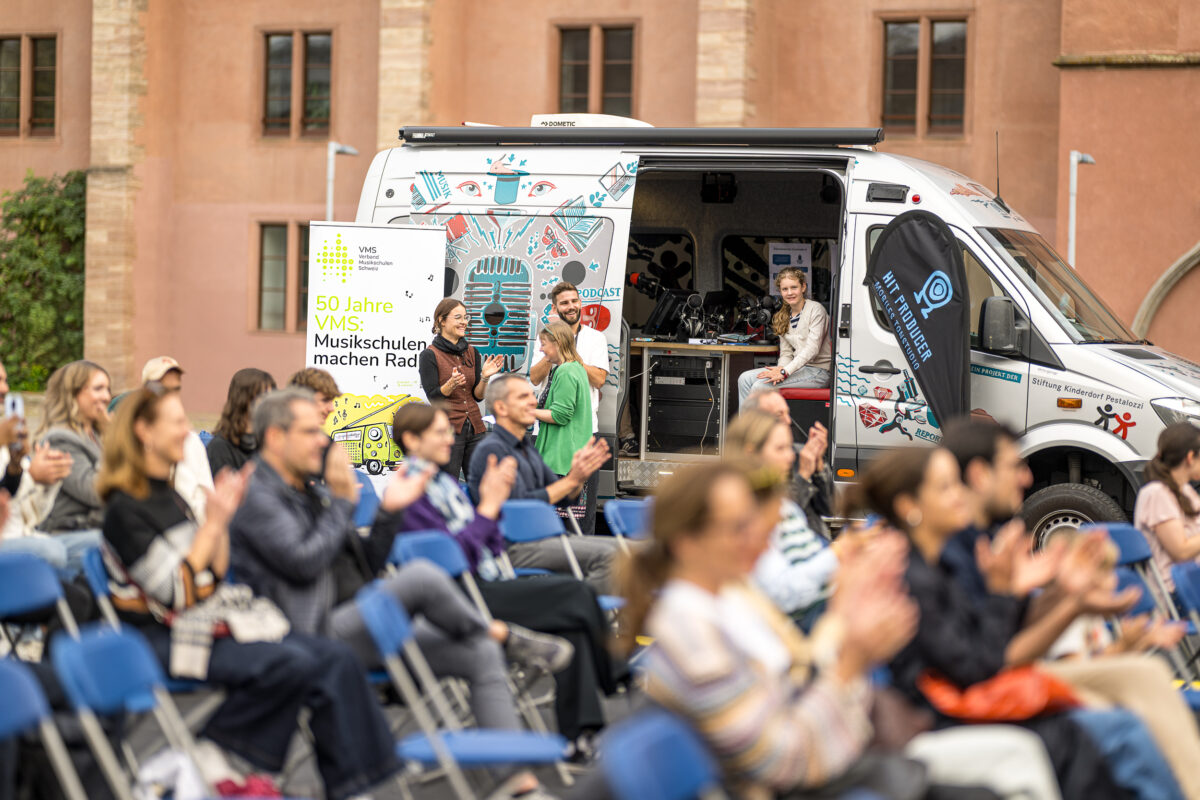ESC School Song Contest: For the first time on the big stage
The Returners", a school band from the canton of Aargau, reached the final of the Eurovision School Song Contest and performed live in Basel in front of a large audience. We spoke to the two guitarists, the guitar teacher and the director of the music school about this exceptional opportunity.

More than 100 student groups from all over Switzerland have registered for theEurovision School Song Contest"The competition was organized by Swiss television in Basel in conjunction with the Eurovision Song Contest. The groups submitted videos of self-composed songs and covers recorded in the rehearsal room or outside, with appropriate choreography and clothing. All styles were represented - from yodeling and hard rock to funky pop and chanson à texte.
Countless participants attend Swiss music schools. Such is the case for the six members of "The Returners", who won over the jury led by Anna Rossinelli. They made it through to the final as one of the four best groups, and were able to perform two songs at the Eurovision Village on May 14. We spoke to guitarists Lean Melone and Samuel Binkert, guitar teacher Yiannis Papayjannis and music school director Diana Bauchinger.
Lean Melone (14) and Samuel Binkert (14), guitar students at the school music school in Möhlin.
What was it like performing live at Eurovision Village?
Leant: "It was mega cool. A great opportunity to get together on a big stage. It's something we'd never done before. Up until then, we'd only performed in front of twenty or thirty people at a birthday party for a band member's father.
Samuel: It made us really happy. It was great to see that people thought what we were doing was great.
Were you nervous?
Lean: Surprisingly, no. Just a little bit before we went on stage, and the others too I think. But hardly at all while we were playing.
You've played tracks by Guns N'Roses and Foo Fighters. Why this choice?
Samuel: We all just think it's a pretty cool musical style. A bit rock'n'roll and rock.
How did you find out you'd been selected for the final?
Samuel: There were two votes, one from the public and one from the jury. We learned the result of the public vote by e-mail. As for the jury's decision, it was communicated to us by telephone on a Wednesday afternoon. One of the singers answered and informed us. We couldn't believe it. We'd signed up mainly for the fun of it, and we weren't expecting it.
What's next for the group?
Lean: We're just going to keep on playing. We'll be performing at the school next week, and we've already had several other requests. We'll be doing a lot of concerts in the next little while (laughs).
And you two, do you work a lot at home, in addition to band rehearsals?
Samuel: Yes, I rehearse every day, including weekends. It just gives me pleasure. When I'm bored, I repeat. I never have to force myself.
Lean: It's the same for me. I always try to rehearse when I have time.
Yiannis Papayiannis, professor of guitar at the Möhlin music school, guitarist and sound engineer
"Lean Melone and his brother Mael, who also plays in the band 'The Returners', have been taking guitar lessons with me for about two years. They have a very high level and both did very well in the assessment tests. They also play, for example, pieces by the progressive rock band Dream Theater, which are very difficult to play, with measures of 7/8 or 14/16 and many modulations. I've already transcribed several Dream Theater pieces for them. For one of them, I invested three days during the vacations. I was happy to do it, as I was also very interested.
It's great to have students as interested as these two. They rehearse a lot at home and I invest a lot of time in preparation. During teaching, they make the most of every minute - the lessons are always far too short! They're also interested in effects, pedals and amplifiers. Guitar teaching is very varied, with lessons on music theory, chords, accompaniment, solos and phrasing, as well as aspects of sound and equipment.
During the lessons, we also often look at pieces they play with the band. We discuss ideas for solos and reconstruct specific guitar sounds. I've heard the band play before. They do it really well."
Diana Bauchinger, director ofMöhlin Music Schooltrumpeter and director of Knaben- und Mädchenmusik Basel.
"I obviously think it's great that students from our music school and our neighboring school took part in this event. What's particularly great is that the youngsters founded the band themselves and also entered the competition themselves. We simply laid the foundations for this through individual lessons at our school.
I don't think the public always realizes what's behind these performances. It's a long road to get there - from being interested in music to forming a band of one's own, and even to success, as at the Eurovision School Song Contest. Young people, parents and teachers alike invest a lot of time and energy.
But it's above all the children and young people who are committed to their music lessons and their instrument. They want and need to take the time to rehearse, and this requires much more personal effort than in sport, where you join a group at practice and don't really need to practice alone at home.
And then there are the parents. It's very important that they support their children, integrate regular exercise into their daily lives and help them to persevere. It's really worth it.
Music teachers also contribute a great deal. When they reach out to students, discover talent and encourage them, a lot becomes possible. It's not always easy for them. Many of them teach at reduced workloads in several schools, sometimes in different cantons. It's a lot of work to keep an overview, for example of talent promotion or competitions, which are always organized differently. The commitment of our music teachers is invaluable.
Last but not least, we also need the right structures and support at local and cantonal level. Musical training is extremely important. And we're really pleased that this competition, organized as part of a major event like the Eurovision Song Contest, has demonstrated this."









